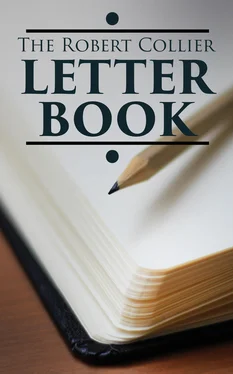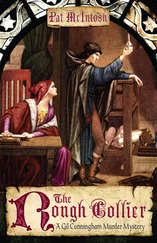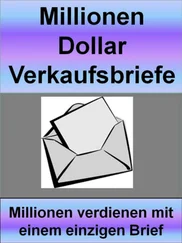But we were too happy over having found the answer to do any worrying about what was past and done with. It took us just about three days to get a letter into the mails to every stove founder within five hundred miles of us. This, you must remember, was back in 1907 or 1908, when Bryan was still a name to attract attention anywhere.
When Bill Bryan first sprung his 16 to I ratio upon a waiting world, founders and business men generally called it visionary and impractical—said it wouldn't work.
So when Bill Smith, Cupola Foreman for the Bucks Stove & Range Company of St. Louis, proudly strode into the President's office with his report of a 15 to I melt, he wasn't surprised to meet with only skepticism on the part of that official.
"You're getting your politics mixed with your melting figures!" accused the Boss. Bill may lack some of the eloquence of his namesake, but no one ever accused him of running away from a scrap. So the upshot of it was that the President agreed to be on hand at the next melt.
Sure enough, Bill's figures proved to be right! They didn't equal Bryan's 16 to 1, but they averaged a good 15 tons of iron to every one of coke!
Of course, Bill modestly disclaims the credit. "Any one could do it with that coke," he says. "It's got a structure that'd carry the Eiffel tower. And as for sulphur bubbles—it just never heard of such words."
And that's the reason Powellton Coke gets the Bucks Stove & Range contract this year, in direct competition with and after thorough tests of every good coke on the market. That's the reason the Gallipolis Stove Company, the Huntington Range Company and a dozen others have been using Powellton Coke for years.
Of course, some of them stray away occasionally. We're none of us proof against the siren song of low price, but when they begin to figure the cost of their coke in tons of iron melted, as the Bucks Stove & Range Company did; when they find that on this basis Powellton Coke is costing them only 470 a ton of melted iron against 800 to 900 for any other brand, and when they add to that the cost of scrap castings due to sulphur and phosphorus, they always come back, and it's a long time before they stray again.
If you figure your coke cost, not on the delivered price of the coke, but on tons of iron melted—if you are buying high carbon heat-content, and not sulphur, ash and phosphorus—we have some figures that will interest you.
May we send them?
That letter brought home the bacon. For a while we had almost a monopoly of the stove and range business in our territory. We did not keep it altogether, because good coke structure depends largely upon skill in making the coke, and other ovens with the right kind of coal succeeded in making almost as good a coke as ours. With intensive study, they found ways of loading the furnace so that their coke would melt just about as high a percentage of iron as ours.
But do not imagine we were resting on our laurels, or out playing golf all this time. We realized it would not be long until some one caught up to where we were then, so we tried to keep at least one good jump ahead.
We tested not only our coal and coke, but different ways of screening the one and making the other. We tried cooking longer and shorter periods, charging the ovens with bigger or smaller charges—everything, in fact, that we could think of that might make our product better.
And we did not stop with our own product. We had numbers of experiments made in the more effective use of our coal and coke We had never heard of the rule that a letter should talk—not about your own product but about the pleasure or profit your customer will get out of it, but we had learned from long experience that coal and coke were drugs on the market and could only be sold on a price basis, whereas cubic feet of gas, or thermal units of steam, or melted tons of iron were things that sold themselves.
In line with our idea of making every possible improvement in. our product, we got a few books on letter-writing and applied the principles outlined in them to our letters. I remember the first set of books we got. It was System’s "Business Correspondence Library"—three volumes—and it became our Bible for direct-mail work Looking back on it now, I do not believe we could have found a better ground-work for our studies. Certain it is that it helped us to sell many thousands of tons of coal and coke, when without it we might have lost the sales. I think it is out of print now, but next to Herbert Watson’s "Applied Business Correspondence," I believe it had helped more men to a knowledge of how to use letters for profit that any set of books ever written.
John Blair, founder of the New Process Company of Warten, Pa. once told me the same thing. His introduction to good letter-writing came from the same little set of three books—after he had made him bow with a few successful efforts of his own, about which more anon.
To go back to our interrupted labors: Starting in 1907 or 1908, and continuing for five years, we sold practically all the products of our mines and ovens by mail. We used dozens of different letters and circulars, with all kinds of variants upon the one appeal, but unfortunately my book of letters was lost a few years ago, and the company had then changed hands, so the only sample I have to show is the letter quoted above.
It was about this time I had the good fortune to meet Thomas H. Beck, then sales manager—now president of Collier’s. He had been sales manager of Proctor & Gamble, the Ivory Soap people, where he was responsible for as revolutionary an idea in its way as was ours of selling cubic feet of gas and tons of melt.
Soap flakes, it seems, were sold to laundries by the barrel of so many pounds weight. One barrel of soap was considered much like another, so sales were made almost entirely on price. Then it occurred to Tom Beck to have Ivory Soap flakes analyzed and the results compared with analysis made in their laboratory of all the competing brands. What was his surprise and delight to find that the competing brands contained something like (let us say) 15 percent water, to only about 5 percent water for Ivory!
If a barrel of soap cost $2, a laundryman could pay Ivory $2.20 and be getting his actual soap content for the same price per pound that he was paying the $2 competitor. If in addition he was paying $1 a barrel for freight or delivery service, that made an extra premium of 10 cts. he was handing to Ivory's competitor.
It did not take Tom Beck more than half a minute to figure out the possibilities that this opened up. As soon as they could be got into the mail, he had letters on the way to every laundry in his territory asking them whether they were buying soap or water, suggesting that it might be cheaper to get their own water from the faucet rather than have it freighted all the way from the factory to them, and then be charged for it at soap prices in addition.
To say that he started a furor among soap makers is putting it mildly.
The net result to him was that it enabled him to land the far bigger job with Collier's, and to me that it gave me a sympathetic ear into which to pour an idea I had long been nursing for selling Collier books by mail.
Which takes us into another chapter.
CHAPTER 10
HOW IT ALL BEGAN
Table of Contents
P.E. Collier & Son had been publishing books since 1885, selling them through salesmen, directed by some thirty-seven branch offices.
In the two or three years prior to 1913, they had made six different attempts to start a department for selling books by mail—all without success. One man spent $25,000 and sold eighteen sets of books. So when I, with no knowledge of book selling and no background but our coal and coke sales, suggested that I had an idea which I believed would sell books successfully, it is no wonder the "powers-that-be" laughed at it.
Читать дальше











